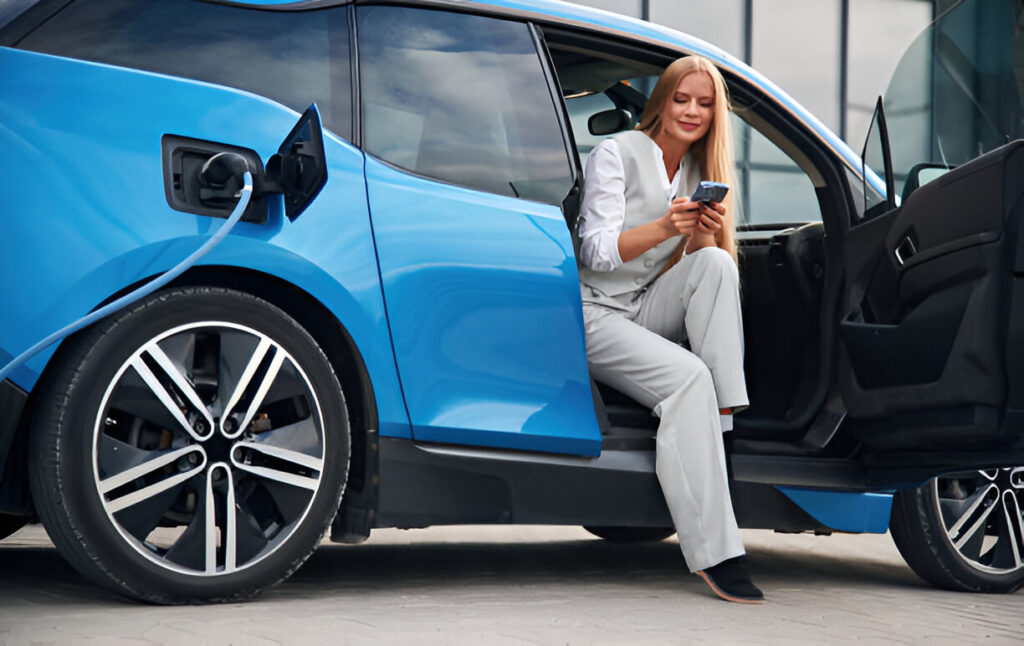From niche products 10 years ago, electric automobiles have become somewhat popular transport options. The rising popularity of them has been attributed in part to improving infrastructure, technological advancements, and environmental consciousness. Many are seeing advantages going from traditional internal combustion engines to electric substitutes that go beyond only environmental ones. Knowing these benefits will enable you to decide whether an electric car would be appropriate for your particular transportation requirements.
Enhanced Driving Experience
Driving an electric vehicle feels somewhat different from driving a typical gas-powered car. Particularly in urban environments where quick agility counts, many drivers find attractive, sharp acceleration provided by the fast torque delivery. Placing batteries in the car floor reduces the center of gravity, therefore improving handling and stability at turns. The interior is quieter, and driver weariness is reduced on long distances as electric motors generate far less noise than combustion engines. Many electric vehicles include regenerative braking systems that slow the car while recharging the battery, therefore giving a one-pedal driving experience that many owners find straightforward after a time of adjustment. Modern technological interfaces included in advanced electric models give comprehensive information about energy use, therefore enabling drivers to maximize their range and efficiency over time. Furthermore, the uninterrupted power supply removes the gear-shifting disruptions typical of conventional vehicles, therefore producing a driving experience many EV owners find to be revolutionary once experienced.
Convenience and Cost Benefits
Having an electric car lets you charge at home overnight instead of having to visit conventional petrol stations. Starting every morning with a full charge from your house charging station solves range issues for regular trips and everyday commuting. Charging stations have been erected in many businesses, stores, and public parking lots, therefore augmenting the available easy charging sources. Because electric cars lack oil changes, spark plug replacements, and many other conventional maintenance items connected to combustion engines, their maintenance needs usually consist of fewer service visits. Although the initial purchase price might be more than for similar conventional vehicles, certain federal tax credits can significantly lower this gap. Over time, operating expenditures usually are cheaper; energy usually costs less per mile than gasoline, and less maintenance helps to save money overall. Moreover, when you consider the total hours spent at petrol stations yearly—which EV users regain by plugging in at home and carrying on with their evening activities—time savings become clear. Certain utility providers additionally provide unique time-of-usage pricing for owners of electric cars, therefore offering much-reduced power during off-peak hours when most overnight charging takes place.
Access to Technology and Innovation
Integrating sophisticated driver-aid systems that improve safety and simplicity of use, electric vehicles typically provide venues for the newest automotive innovations. Without involving dealership visits, over-the-air software upgrades let manufacturers add features, enhance vehicle performance, and address problems. Extensive smartphone connectivity of many electric models allows remote monitoring of charging state, cabin preconditioning, and vehicle position tracking. Specialized electric vehicle loans, with terms that recognize the distinctive value proposition of these vehicles, are growingly accessible for people interested in Rivian financing solutions. With more recent models providing longer range, faster charging capabilities, and performance in many more weather situations than their predecessors, the battery technology in current electric vehicles is improving. Because electric drivetrains are smaller than conventional combustion engines, electric cars also often lead to creative interior designs that optimize passenger space. Because charging networks may examine usage trends to strategically deploy additional stations where drivers most need them, connected EVs’ data-collecting features also help to enhance infrastructure design and provide an even more frictionless ownership experience. Data collecting features of connected EVs help to optimize infrastructure as charging providers examine usage trends to locate additional stations in highly sought-after areas, therefore enabling a smoother ownership experience.
Conclusion
Beyond environmental concerns, electric vehicles represent a significant shift in personal mobility. Different ownership experiences result from the special driving qualities, possible cost savings over time, and integration of cutting-edge technology than from traditional automobiles. For a wider range of drivers, electric vehicles become even more sensible as charging networks expand and technology advances. You may decide whether this technology satisfies your particular mobility needs and preferences by balancing the benefits and constraints of electric cars.

